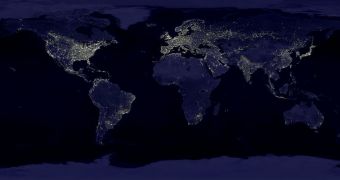According to the latest report released by the United Nations Intergovernmental Panel on Climate Change (IPCC), it would seem that the world could get as much as 80 percent of its energy demands from renewable sources by 2050, if steps are taken now.
In the landmark study, experts explain that policies to target such a scenario should be set in place now, so that they could take full effect within the next few decades. Green power needs to become the focus of governments and decision makers as soon as possible.
The IPCC is the world's leading body on climate science and related issues, and it is made up of the leading experts in their respective fields. Their analysis determined that the switch to renewable energy could be made possible by employing a host of new technologies.
Most of them exist even today, but they are too expensive to use on a large scale. If they are employed widely however, the concentration of atmospheric carbon dioxide (CO2) could be reduced to less than 450 parts per million, the new report indicates.
The chairman of the IPCC, Rajendra Pachauri, explains that switching to renewable energy would cost about 1 percent of the world's GDP every year until 2050. However, this sum is a lot smaller than other experts predicted would be necessary for the task at hand.
Interestingly, the proportion of electricity obtained from renewable sources is already beginning to rise. Between 2008 and 2009 alone, more than 140 of the 330 gigawatts of new electricity generation capacity added globally was accounted for by such sources.
The report estimates that about $5 trillion will be needed between 2011 and 2020 to start the switch. Over the next decade (2021 to 2030), that sum will increase to $7 trillion.
“The report shows that it is not the availability of [renewable] resources but the public policies that will either expand or constrain renewable energy development over the coming decades,” explains the co-chair of an IPCC working grou, Ramon Pichs.
“Developing countries have an important stake in the future – this is where most of the 1.4 billion people without access to electricity live yet also where some of the best conditions exist for renewable energy deployment,” he goes on to say.
“This is an invitation to governments to initiate a radical overhaul of their policies and place renewable energy center stage,” adds the lead author of the paper, Greenpeace International renewable energy director Sven Teske.
“On the run up to the next major climate conference, COP17 in South Africa in December, the onus is clearly on governments to step up to the mark,” he concludes, quoted by Our World.

 14 DAY TRIAL //
14 DAY TRIAL //